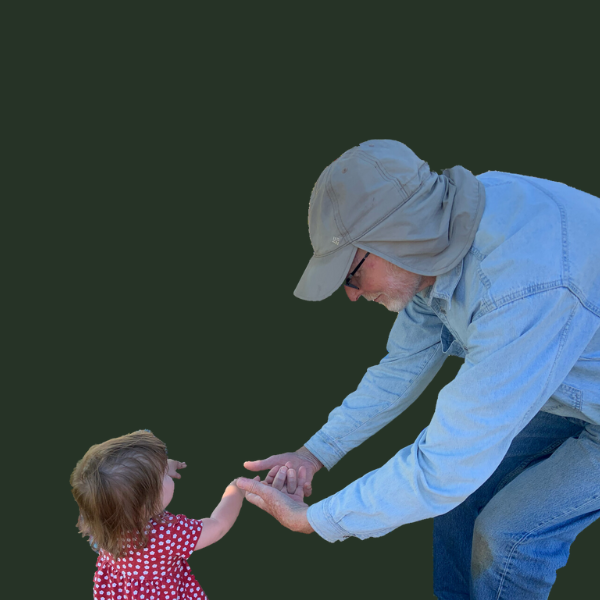Gravity: Acting with an affable seriousness at all times, neither dour nor too jocular.
Gravity Reflection by Chris Adamson, PhD, Director of Faculty Development
My father was dying from leukemia, and the hospital delirium had begun to set in. When the nurse brought him the bagged and irradiated platelets that were part of his treatment, and I put his glasses on so he could read the release form, he became suddenly lucid again. I watched as my father set his jaw against death and asked if they could be given to someone else who was more likely to survive. He wouldn’t sign until convinced that the hospital selects platelets that are about to expire. That moment of caring for an imagined other was the last time I saw him.
When I was flying back to Minnesota after seeing my father for the last time, I read Sam Hazo’s recent poetry collection, The Treachery of Luck. Hazo’s poetry is filled with meditations on mortality, so I had a sense it would help me internalize my father’s—and in turn my own—mortality. Here’s the framework Hazo gave me for my father’s caring stance:
I only know that I feel
most myself when I say no
to what deserves a no
exactly when the no is needed.
To those obsessed with outcomes,
I suggest what matters first
and always is the choice—the stance.
Through taking that stance, to say no to something if someone else could use it, and to do it with kindness and courtesy to the nursing staff was the last moment my father formed me. I know that we are in an age and profession “obsessed with outcomes,” and that as a community we have the practical necessity to obsess over outcomes to ensure the students entrusted to our care leave here as ethical leaders prepared to serve the common good. But don’t lose sight of the stance. The stance we take to life and each other enables us to “say no / to what deserves a no /exactly when the no is needed.” Roger Adamson spent his life caring for the material well-being of others, so in his final days, when he could barely hold his own coffee cup or remember the day, he could stop and ensure there wasn’t someone else he could give to.
I think this is the heart of gravitas, that old Roman and Benedictine virtue inherited in the
Lasallian virtue of seriousness. Brother Agathon speaks about the balanced virtue that is neither too remote nor too immature because gravitas is all about attending to what is actually important in a jovial way and drawing our students with us. My brothers and I will never forget that moment. Our father’s stance has struck us deeper than anything that can be measured. And we are drawn to act like him with an attention to the heart of the matter beyond measurable outcomes.
What is your stance to your students? To your discipline? To the great adventure of education? How are you going to make that choice now—adopt that stance—that will enable you to say no at the right time to the right thing? Your students are watching and they need you to point to what is really worthy of their attention.


